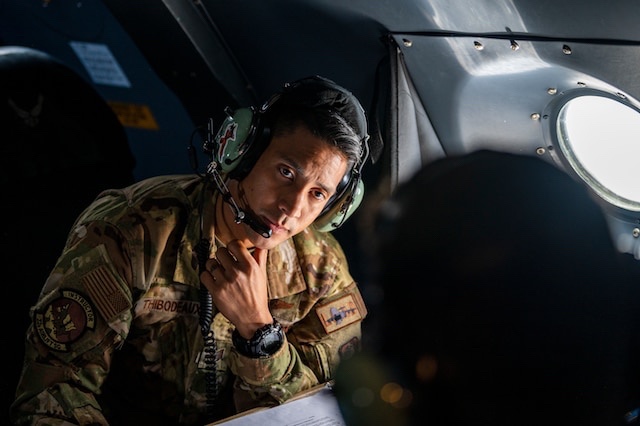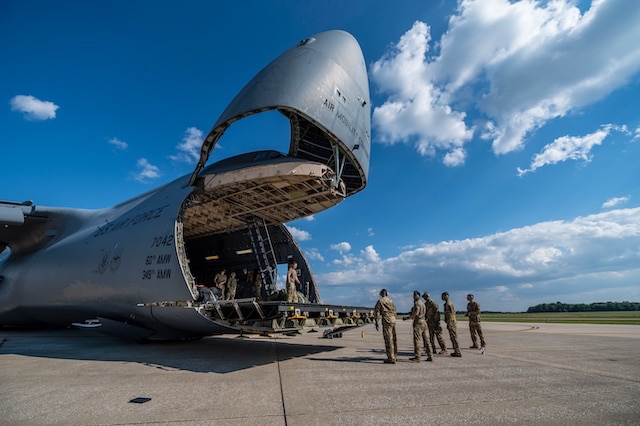SOTO CANO AIR BASE, Honduras (AFNS) —
Airmen assigned to the 22nd Airlift Squadron and 60th Aircraft Maintenance Squadron from Travis Air Force Base, California, collaborated to deliver more than 90,000 pounds of humanitarian aid to Honduras during a combined Major Command Service Tail Trainer (MSTT) and Denton cargo mission Aug. 21-31, 2022. Members of Youngstown Air Reserve Station’s 76th Aerial Port Squadron helped palletize and load the cargo.
Maj. Zachary Barrington, 22nd Airlift Squadron C-5M Super Galaxy pilot instructor, led a 14-member crew that delivered approximately $38,000 worth of medical supplies and other goods to support the Denton Program, which allows private U.S. citizens and private organizations to transport humanitarian goods to approved countries in need.
The crew consisted of pilots, flight engineers, loadmasters and crew chiefs with varying levels of experience. Each member received real-world operations training for the C-5M, enabling some members to become fully qualified and ready to support rapid global mobility.
“It was incredible to witness how the crew divides and conquers each challenge to successfully deliver aid where it’s needed,” said Staff Sgt. Darren Hopkins, a recently cross-trained 22nd AS C-5M flight engineer.

With the guidance of his instructor, Tech. Sgt. Beverly Castro, 22nd AS C-5M flight engineer instructor, Hopkins transitioned from simulators and theoretical systems studies to real-world applications in operations for the first time on this mission.
Each student on board received guidance and debriefs during flight and upon completion of their performance at every stop from their respective career field instructor.
“One of our goals during these MSTT missions is obviously to expedite students’ upgrade training, but just as important is to build our loadmasters’ competence and confidence,” said Tech. Sgt. Jacob Buruato, 22nd AS loadmaster instructor.
These long missions allow pilots, flight engineers and loadmasters the opportunity to check off tasks required to reach proficiency.

“These training missions are imperative to the development of our students’ skillset and ultimately, to mission success.” said Buruato. “Whether you are a pilot, flight engineer or a loadmaster student, MSTTs equip our Airmen with additional knowledge and real-world experience to tackle obstacles in the future should they face any.”
Both students and instructors benefit during these training missions.
“The moment when your student understands and realizes the importance of their role during a mission is very rewarding,” said Buruato, “And missions tend to drive that newfound mindset home.”
Dual-purpose missions like these tend to do just that.
“Flying into Honduras was a unique experience on its own,” said Hopkins. “Realizing that these supplies contribute to the development of that country helped me put things into perspective.”

The rest of the training consisted of stops to unique places such as Colorado, Ohio, Florida, South Carolina and Portugal.
“One of my personal takeaways from my first flight in my new career field is witnessing how these trainings support growth on the road, enhance communication and draw the crew closer to become one team, one fight when it comes to rapid global mobility,” said Hopkins.
By Senior Airman Karla Parra, 60th Air Mobility Wing Public Affairs

